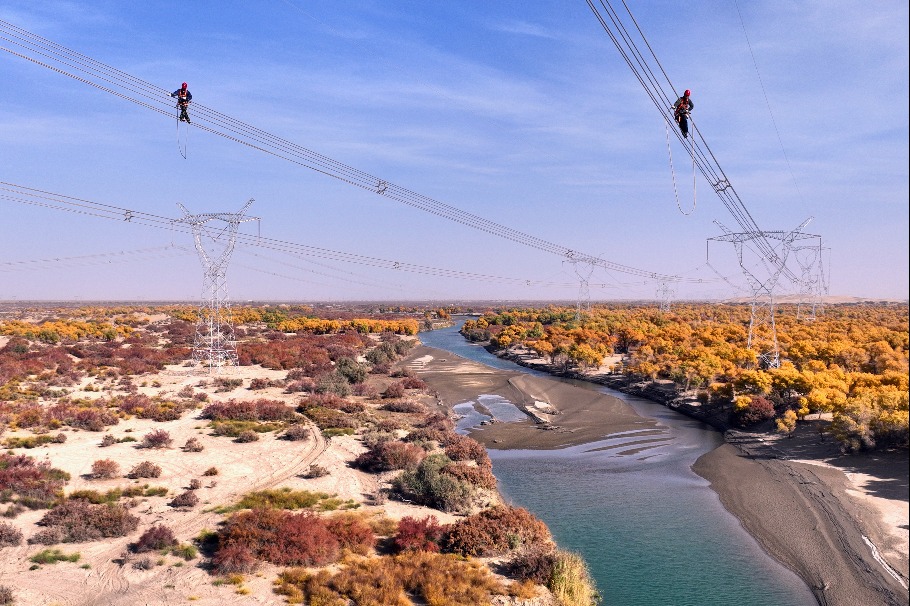Firm focus on shared interests stabilizes Sino-Australian ties


Australian Prime Minister Anthony Albanese's July 12-18 visit to Chinahis first since re-election — marks a pivotal moment as the two countries' comprehensive strategic partnership enters its second decade. His itinerary covering Beijing, Shanghai and Chengdu underscores Australia's commitment to deepening economic ties with its largest trading partner and injecting fresh momentum into bilateral relations.
Over the past few years, the two sides' relationship has faced challenges, but the trajectory is now unmistakably positive, driven by shared economic interests, regional responsibilities and a mutual recognition of the vast potential this comprehensive strategic partnership holds. High-level dialogues provide a crucial platform for candid and constructive discussions on trade, regional security and cultural cooperation. In an era of global uncertainty, such mechanisms help build trust and reduce misunderstandings.
China's approach to its relations with Australia has been consistent and principled. Beijing stands ready to work with Canberra to deepen cooperation, enhance mutual trust and build a more mature and stable bilateral framework. This is not merely diplomatic rhetoric but a reflection of China's long-standing commitment to translating political goodwill into tangible benefits for both nations.
Australia, as an export-oriented economy, relies heavily on access to global markets, with China serving as a key destination for its exports. Sustaining stable and constructive trade ties with China is vital to the success and long-term growth of Australia's export-dependent sectors. In addition to exports, Australia also depends on a wide range of imports from China. Developing a more diversified and balanced trade relationship could unlock new economic opportunities and support job creation across various industries in Australia.
Their economic relationship reflects the truth. The Australian Department of Foreign Affairs and Trade reported the country exported A$212.7 billion ($134.13 billion) in goods and services to China in 2023-24, part of the A$325 billion two-way trade total that grew 2.6 percent year-on-year. As well as resources and commodities, services exports surged 42.3 percent over the same period. In fact, Albanese told reporters before his departure to China that the country's relationship with China means jobs in Australia.
The easing of trade barriers to Australian exports, which had been implemented since 2020, demonstrates the resilience of economic ties and a shared understanding that trade should not be politicized. The China-Australia Free Trade Agreement, in force since 2015, continues to deliver mutual benefits, a utilization rate of over 90 percent in both directions. As key members of the Regional Comprehensive Economic Partnership agreement, both countries also play a vital role in fostering a rules-based and open trading system in the Asia-Pacific.
In addition, tourism and education are other key areas of cooperation. Australian citizens are exempt from needing a visa for stays of up to 30 days in China since China expanded visa-free entry to more than 70 countries. Also, China has long been a major source of international students and overseas tourists for Australia.
Differences between the two countries, whether on geopolitical alignments or domestic policies, are natural, but they need not dominate the relationship. The key lies in managing disagreements with respect while focusing on shared interests, a principle that has guided the recent stabilization of ties. Albanese's visit comes at a pivotal time, with shifting dynamics in the Asia-Pacific and broader global uncertainties. A steady China-Australia relationship benefits not just both nations but the entire region.
The path forward is clear, both sides should leverage their economic complementarity, expand cooperation in climate action and innovation, and strengthen cultural ties. Disagreements may persist, but pragmatic cooperation can yield substantial progress.
As the world grows more interconnected, China and Australia have every reason to strengthen their partnership. By doing so, they can not only advance their own prosperity but also contribute to a more stable and cooperative Asia-Pacific. Albanese's visit is a reminder that dialogue and mutual respect remain the surest path to a brighter future.


































